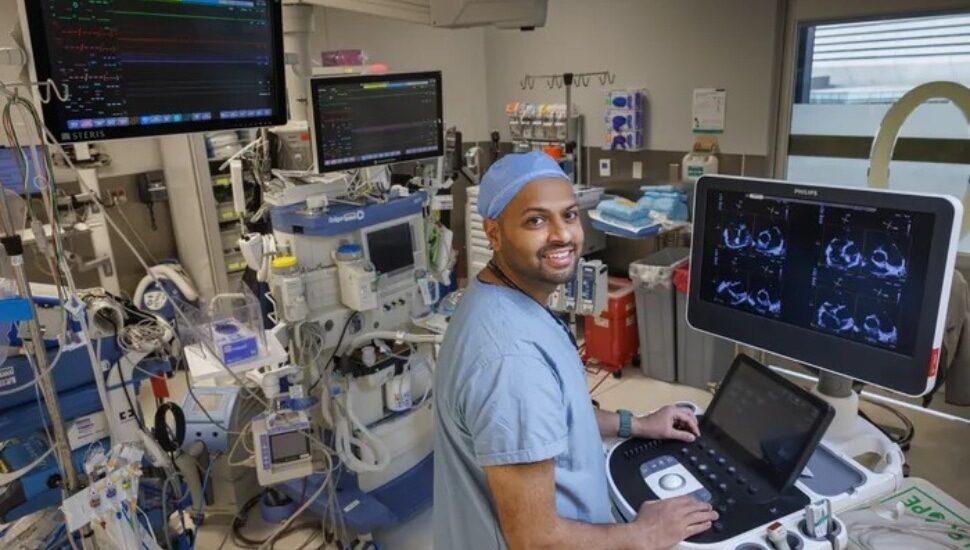Chester County Doctors Use New Technology to Save Collegeville Resident’s Life

When Collegeville resident Anthony Scalies went into cardiac arrest while a patient at Chester County Hospital, he had no idea that he would be a part of a new clinical trial, writes Terri Akman for The Philadelphia Inquirer.
Scalies had been admitted to the hospital 10 days prior with COVID-19. Cardiac arrest is common among patients with severe COVID-19 infections, but the doctors weren’t sure why his heart suddenly stopped beating that day in April.
The standard response to cardiac arrest is immediate CPR, and then diagnostic tests later to determine why it happened. This can take time though, which can affect a patient’s ability to recover.
To find the root cause of Scalies’ heart failure quicker, Asad Usman, assistant professor of anesthesiology and critical care at Penn Medicine, used new technology called Rescue TEE.
The device uses a tiny camera at the end of a flexible tube inserted through the patient’s throat to take ultrasound images of the heart during CPR.
“Instead of working in the dark,” said Usman.
The imaging showed that it was the right ventricle of his heart that had failed. It had also affected his lungs.
The clinical trial that Scalies is a part of will compare the outcomes of patients like himself who were treated with Rescue Tee to those who received standard CPR treatment.
Learn more about Anthony Scalies in The Philadelphia Inquirer.
______________________
Learn about The Penn Medicine Access Center.
Connect With Your Community
Subscribe to stay informed!
"*" indicates required fields
















![95000-1023_ACJ_BannerAd[1]](https://vista.today/wp-content/uploads/2023/03/95000-1023_ACJ_BannerAd1.jpg)































